
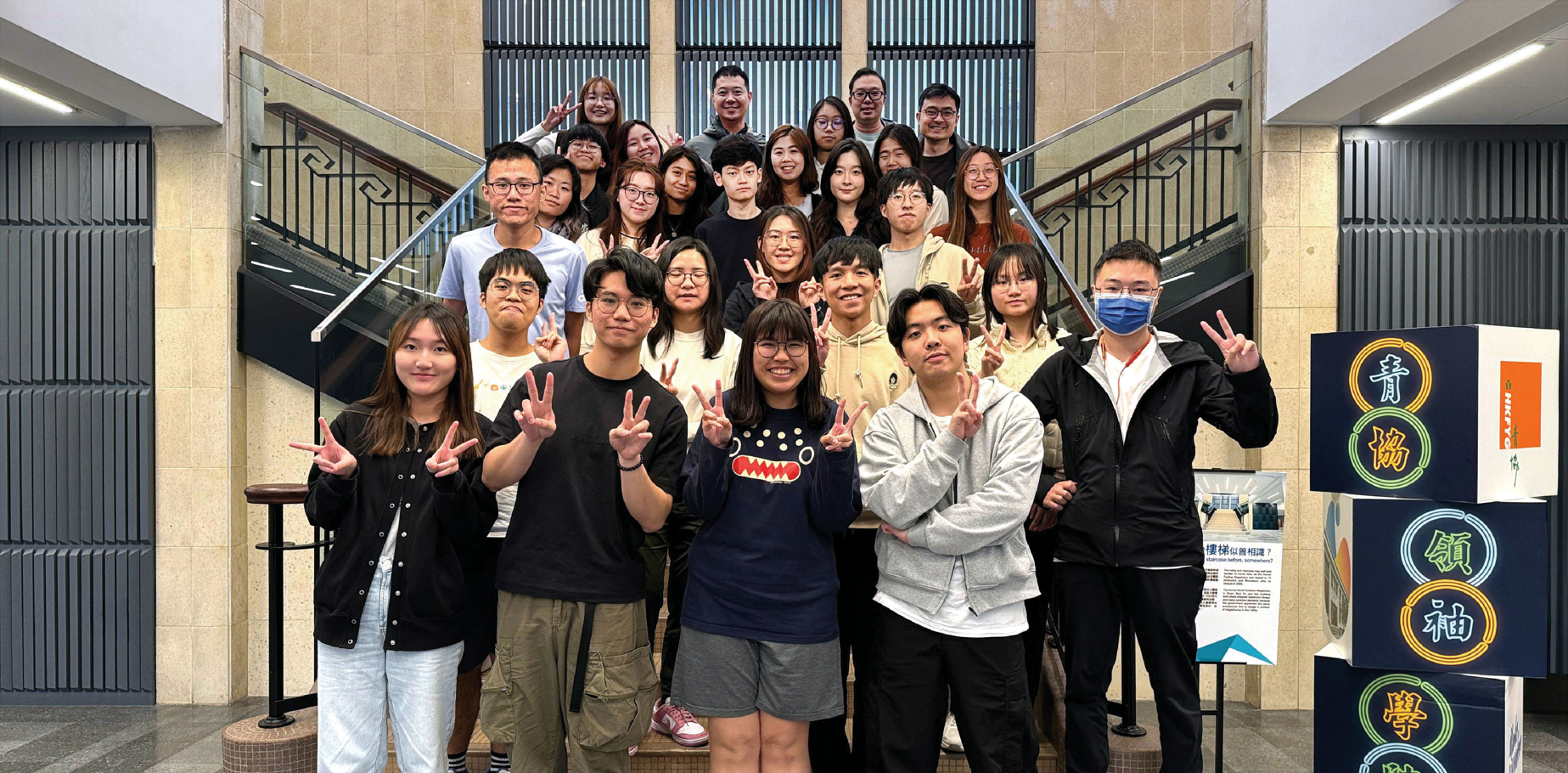
The Servant Leadership Course (GECC3430) was offered for the first time in the second semester of 2024/25. It is open to senior Chung Chi students interested in leadership and contributing to campus and society. The course aims to teach, reflect on, and apply the theory of servant leadership, fostering outstanding student servant-leaders.
Students might think “leader” is a role in which someone wields power and commands others, and it seems unrelated to the term “servant”. Indeed “servant leadership” is a distinct leadership style introduced by Robert Kiefner Greenleaf. Its core idea is that leaders should prioritise serving the needs of their team members through ways such as enabling and empowering them, helping members grow and develop, and achieving the vision of the team.
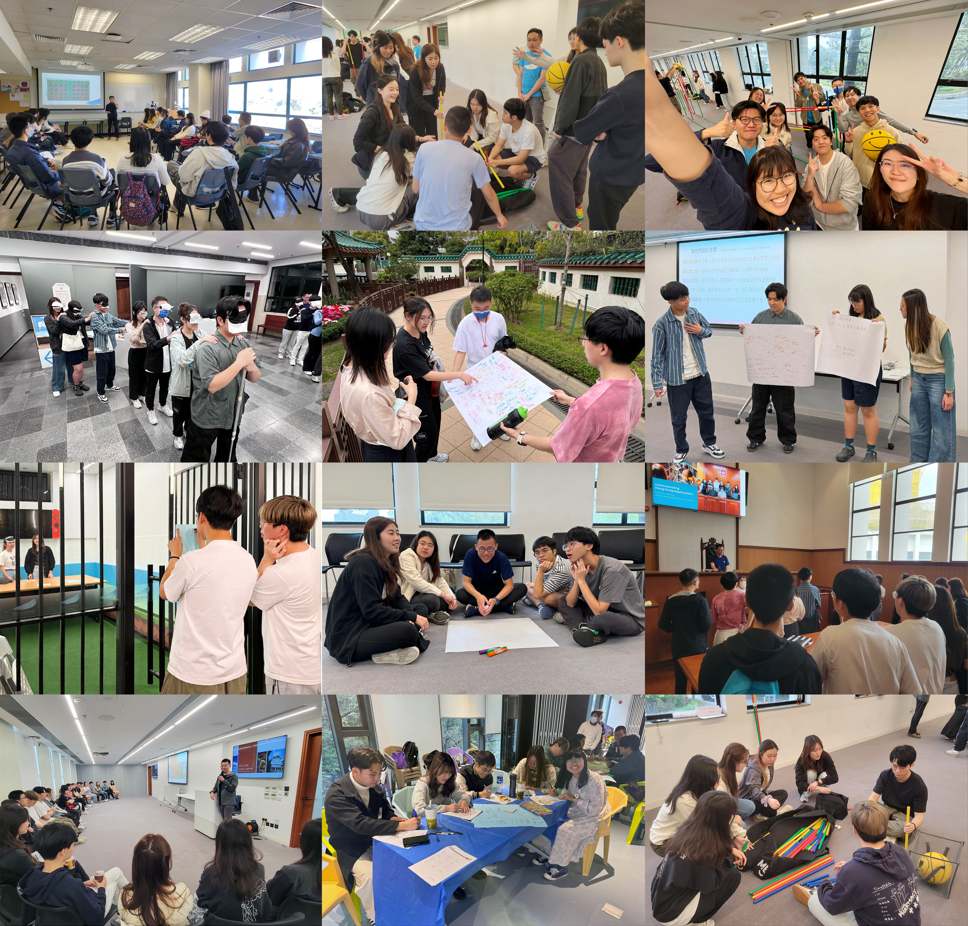
The First Step: Stepped Out of Lecture
The course design for servant leadership differed from traditional classroom models. In addition to lectures, it included various experiential learning activities, such as workshops and a training camp. While an experienced instructor was invited to share the theory and principes of servant leadership with students, the College also collaborated with the HKFYG Leadership Institute to organise three workshops focusing on design thinking, personality dimensions, and pitching, as well as a two-day training camp for students to review, practice, and experience what they had learned.
During the personality dimension workshop, students were able to recognise that everyone has different personalities and thinking patterns. After finishing the personality test, students were grouped into four groups according to their personality types for further tasks. One of the tasks was about constructing an ideal space, and the outcomes showed different focuses among the groups, which indicated that everyone has their perspective. Good leaders should be able to discover the characteristics of their subordinates and utilise their expertise to maximise the problem-solving abilities of the team. Some students even used what they learned in this session for their coursework, emphaising the importance of addressing team members’ concerns to enhance communication effectiveness.
Coordinate, and be Considerate
A two-day training camp at the HKFYG Leadership Institute in Fanling was also organised. By participating in different activities, students gained a better understanding of team communication and design thinking. In one activity, students, divided into three groups, were required to design and make a tool using various components to deliver a ball. This session prompted students to reflect on their practice of leading a team, coordinating with others, and solving problems. Students were able to explore an effective approach to communication and to contribute to the community.
Grouped students also visited the nearby Cheung Wah Estate to observe specific communities, such as the elderly, ethnic minorities, and low-income families, and were required to design proposals to improve their quality of life. Students were highly engaged, some groups even conducted interviews with residents. After the visit, students participated in a series of activities simulating the experiences of people with disabilities, and some students expressed their reflections on how challenging it is for people with disabilities to complete daily living tasks. This session guided students to make people-oriented assessments and put themselves in the shoes of those they are serving.
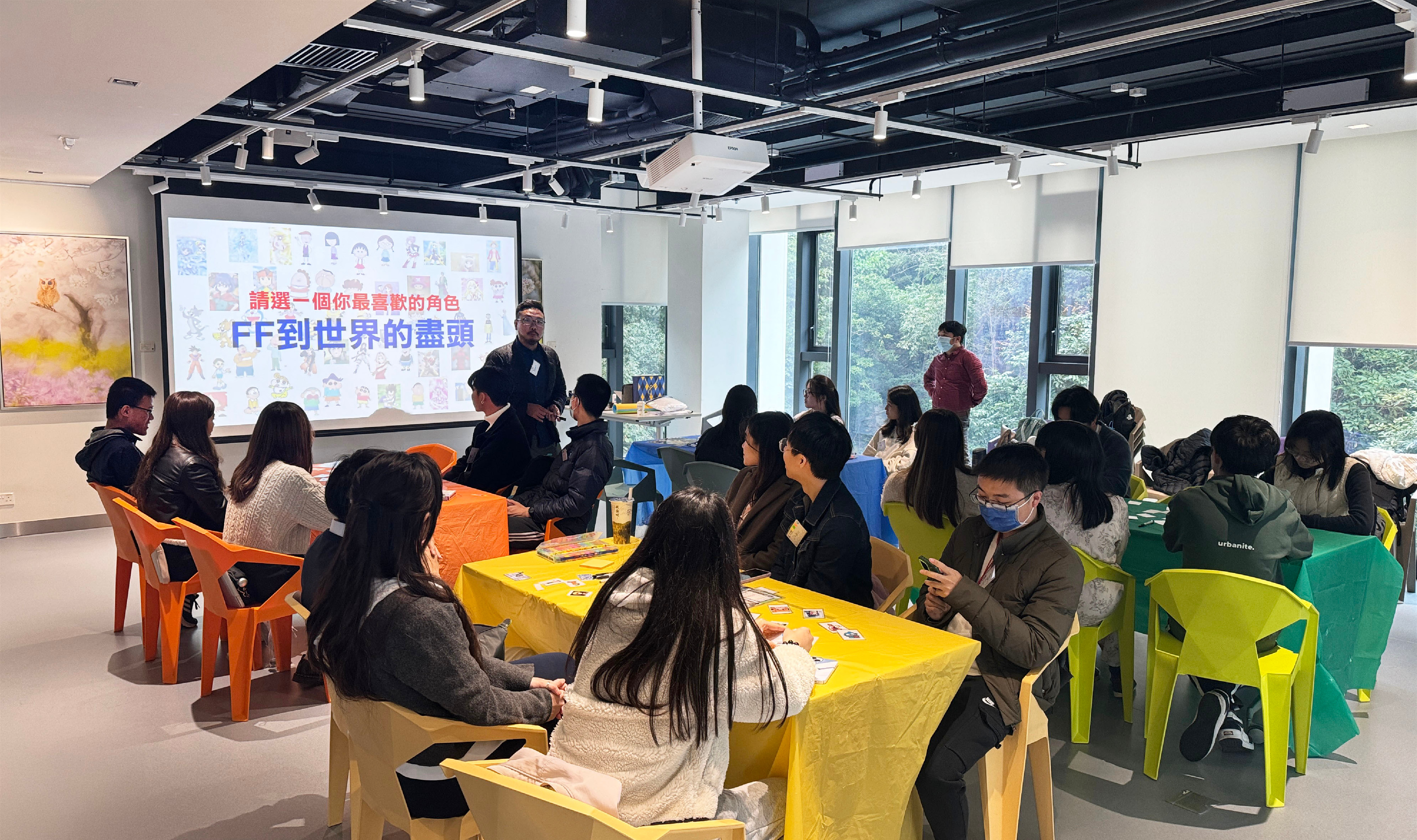
Students learned about different personality traits and thinking patterns in the Personality Dimension Workshop.
Team Spirit Goes First
The group assignment for this course required four students in each group to design activities for communities they wanted to serve, while assessing the needs of the members of those communities. I had previously participated in the Chung Chi College exchange programme and joined overseas internships, which gave me a bit of experience interacting with foreigners. However, during the course, I kept recalling my memories of interacting with non-local students, noticing many details I had not considered before, which represented their “needs”. Consequently, I proposed activities in my final report, targeting Chung Chi non-local students to help them adapt and integrate into campus life.
Teamwork was a valuable element when tackling the report. I used to work independently in the past because I understood everyone has their own working pace, personality and abilities, which are not easy to coordinate. Working solely always ensures smoothness in conducting tasks. However, after studying servant leadership, I found that it is easier for me to discover the strengths of my teammates, and our different academic backgrounds fostered complementarity. Sometimes I was guided by my teammates when I missed their creative thoughts or got lost in my own ideas, which made me realised the importance of teamwork – bringing individual strengths together is the only way to achieve something great.
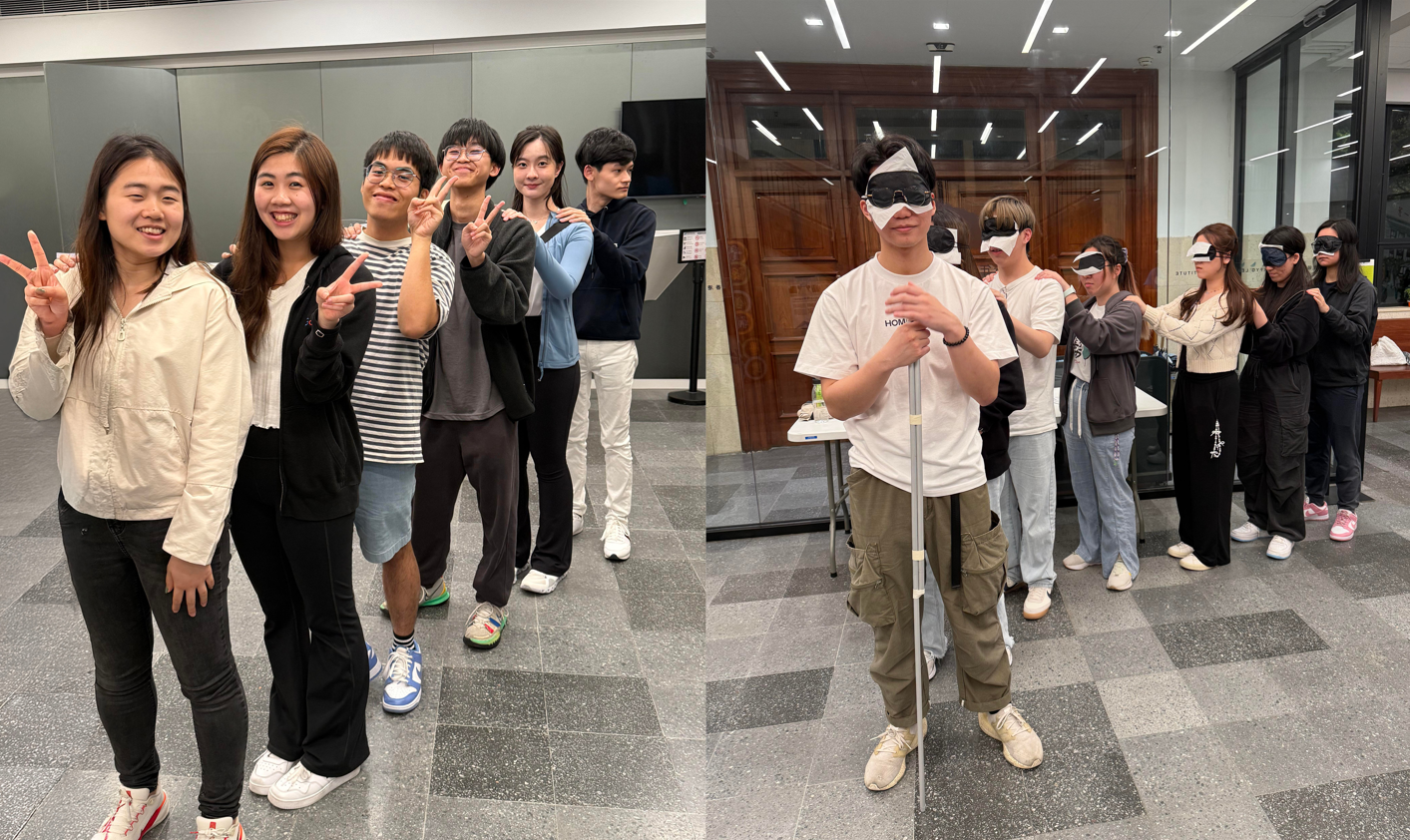
After experiencing the lives of the disabled, students gained a deeper understanding of the challenges the groups faced in their daily lives.
More Than Just an Assignment
People may say we are only students, so what kind of greatness can we achieve? I would say that serving others, a core ideal of servant leadership, has always reminded us to dedicate ourselves to building a better environment for humankind. Encouragingly, the course teachers indicated that the students’ proposal might genuinely be considered and even adopted by the College in the future, which greatly boosted our confidence.
Indeed, all other groups also put their efforts on the reports, some students even presented their observations through interviews and micro-documentaries. Issues such as hostel recycling and the orientation camp were focused, the challenges and concerns highlighted by them were also something resonated deeply with me and my Chung Chi friends.
The newly established course GECC3430 not only nurtured students to become servant leaders but also allowing teachers and students to discuss the optimisation of Chung Chi, CUHK, and Hong Kong society. I sincerely hope that when the course is concluded, everyone will still try to implement their ideas even if they have returned to their daily positions.
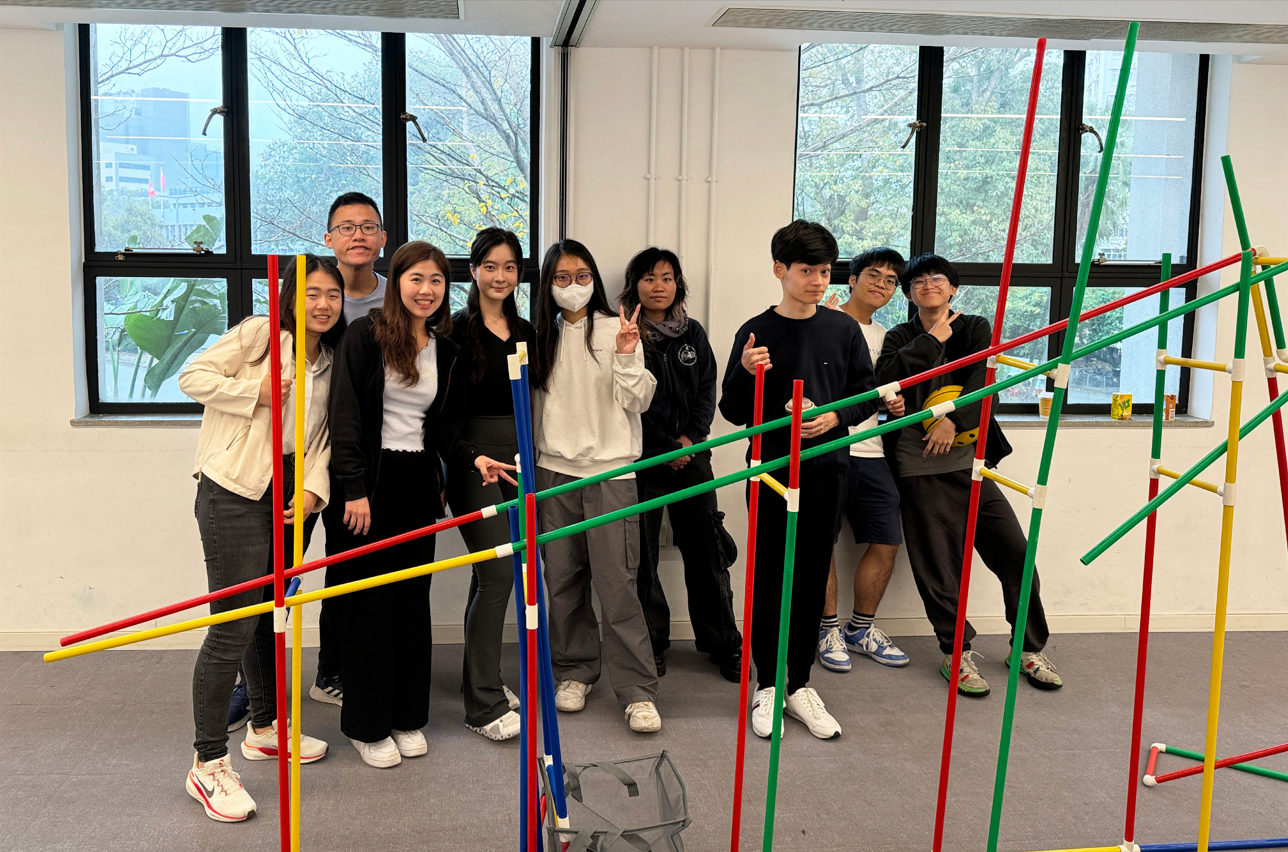
Through experiential learning activities, students observed their leadership, collaboration, and problem-solving styles, and reflected on how to communicate effectively to drive the team toward achieving its goals.
Student Reporter Ngan Man Chin